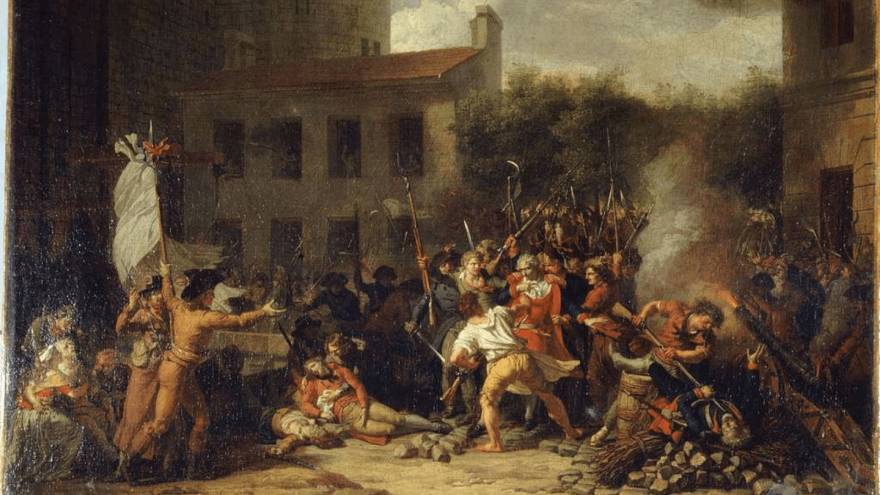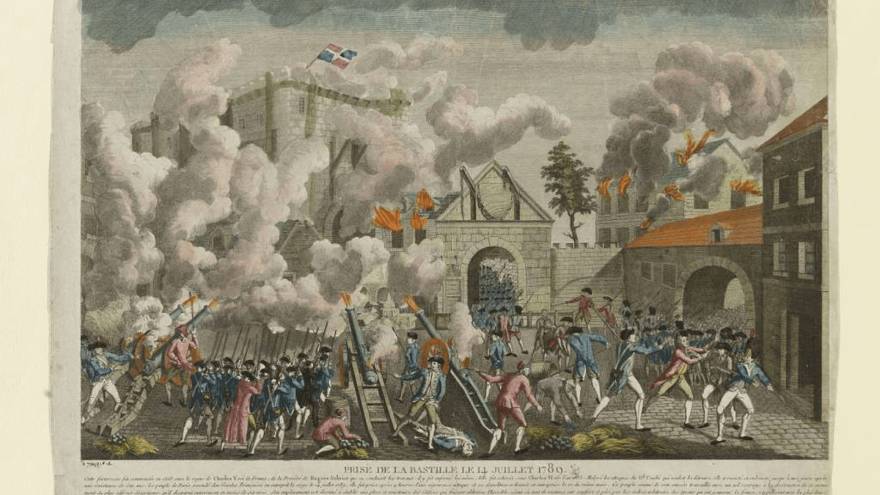Do you like French history? This July, S.L.Immersion invites you to discover the story of the Storming of the Bastille. Here’s a summary of the historical context, the assault, and the impact of this revolution on France.
The storming of the Bastille on July 14, 1789, remains an emblematic event of the French Revolution. This article looks at the circumstances leading up to this historic event and its impact on the Revolution.
In the 18th century, France faced serious social, economic, and political problems. The population was divided into three orders: the clergy, the nobility, and the Third Estate. The Third Estate, essentially made up of the bourgeoisie and commoners, was subject to heavy tax burdens, while the privileged enjoyed numerous privileges.
In May 1789, King Louis XVI convened the Estates General, a representative assembly of the three orders, to find solutions to the kingdom’s problems. The deputies of the Third Order called for greater representativeness and in-depth reform of the political system.
On June 17, 1789, the Third Estate proclaimed itself the National Assembly, seeing itself as the true representation of the people. They were supported by progressive members of the clergy and nobility.

On July 14, 1789, rumors circulated that King Louis XVI was gathering troops to suppress the National Assembly. The people of Paris, fearing an attack, mobilized and headed for the Bastille, a prison symbolizing royal oppression.
The crowd made up of workers, craftsmen, and revolutionaries, laid siege to the Bastille. The fighting claimed many victims on both sides. In the end, the revolutionaries succeed in taking control of the fortress. The Storming of the Bastille became a symbol of the struggle against royal absolutism.
The impact of the storming of the Bastille
The storming of the Bastille marked a turning point in the French Revolution. It demonstrated that the people could rise against established power. It inspired revolutionary movements throughout France, calling for social and political reforms.
Following the storming of the Bastille, the National Assembly adopted several important measures, including the abolition of the privileges of the nobility and clergy, and the Declaration of the Rights of Man and the Citizen. These actions marked the beginning of the radical transformation of French society.

In brief:
The Storming of the Bastille remains a symbol of the struggle for freedom and equality. This event marked the beginning of a tumultuous period in the French Revolution, which overturned the established order and led to profound political and social changes.
This event had a major impact on the French Revolution, contributing to the fall of the monarchy and the establishment of the republic.
Today, the storming of the Bastille is celebrated every year in France as the national holiday of July 14th. There are often fireworks displays in every commune in France. Where the Bastille prison once stood today is the Place de la Bastille.

Remember if you come to France on July 14th
- Fireworks
- A public holiday
- The parade on the Champs Elysées
- The firemen’s ball
- Flypast



